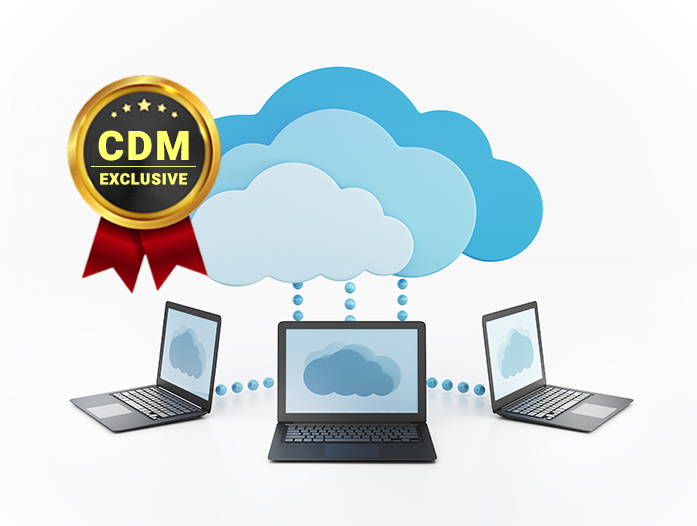- Get a Galaxy S25 phone, Watch, and Tab free from Verizon - here's how
- Best early Prime Day laptop deals: My 12 favorite sales live now
- From Innovation to Action: Seizing the $43B Networking Refresh Opportunity with Cisco
- Best early Prime Day phone deals: My 17 favorite sales live now
- The 13 best early Prime Day 2025 deals under $25
Overcoming Security as a Barrier to Cloud Adoption

By Ron Newman, SVP at NTT Ltd. Security Division
The last year has forced organizations into change, both planned and unplanned. Companies have had to pivot, rethink their business strategies and accelerate their digital transformations. A recent study found that nearly 90 percent of decision makers believe the COVID-19 pandemic has forced them to rely on technology more than ever before. For many organizations, this includes moving workloads to the cloud, a migration that has become somewhat of a necessity for businesses across the globe. Hybrid cloud services, for example, offer benefits, such as assurance of business continuity, resilience, and agility, all issues pushed to the forefront during the COVID-19 pandemic.
A recent report found that nearly 94 percent of organizations responding to the survey agreed that the hybrid cloud is critical for meeting their immediate business needs. More than six in 10 of respondents said they are already using or piloting hybrid cloud services, with another third planning to roll out a hybrid cloud solution in the next one to two years.
Still, there are a hiccups holding some organizations back from embracing the cloud. Many survey participants see cloud security and compliance issues as problematic and a barrier to cloud adoption.
Security concerns in the cloud
Cloud security is complex, and most organizations want a complete picture of the risk. Over a third of the survey respondents migrated applications or data away from the public cloud to private or non-cloud environments, with more than four in 10 moving to non-cloud environments. And just under 30 percent of those organizations that migrated data from the public cloud named a security breach as the primary driver of their migration to private or non-cloud environments. Meanwhile, close to half of those responding said that data security management is the number one barrier to adopting the hybrid cloud.
With its heightened prominence, security has moved from a cost center to an enabler of organizational transformation. But cloud customers are concerned about their cloud providers becoming targets, with a larger attack surface area to secure. Ultimately, security becomes a shared responsibility in the cloud, with both providers and customers playing a major role. But cloud customers can take steps to ensure their applications and data are as secure as possible.
Securing your cloud-based data
First, cloud users should view and establish security as an enabler of digital transformation. With better security, experiences with cloud-based applications can be improved for both a company’s customers and its employees. On the other hand, insecure applications hurt customer experience, brand reputation, and company revenue. I would recommend that cloud users build security into their applications from the very start. Businesses and their products and services should be secure by design to minimize risk.
In addition, organizations moving to the cloud can seek partners that can help them with their cloud journeys. The right partner can secure mission critical applications using cloud and data center infrastructure. Using a partner to take a platform-wide approach enables discovery, configuration, integration, and the management of services across multiple enterprise applications and technology partners. This provides cloud customers with optimized outcomes and the realization of their business goals.
For more on securing your cloud environment, click here.
About the Author
Ron Newman, SVP at NTT Ltd. Security Division. Ron oversees strategy, services and execution for NTT’s Security Division in the Americas. He brings his more than 25 years of experience in the information security industry to drive growth, implement solutions to improve efficiency, lower costs, and reduce risk, and lead business transformations.
Ron can be reached via his LinkedIn profile or at https://hello.global.ntt

